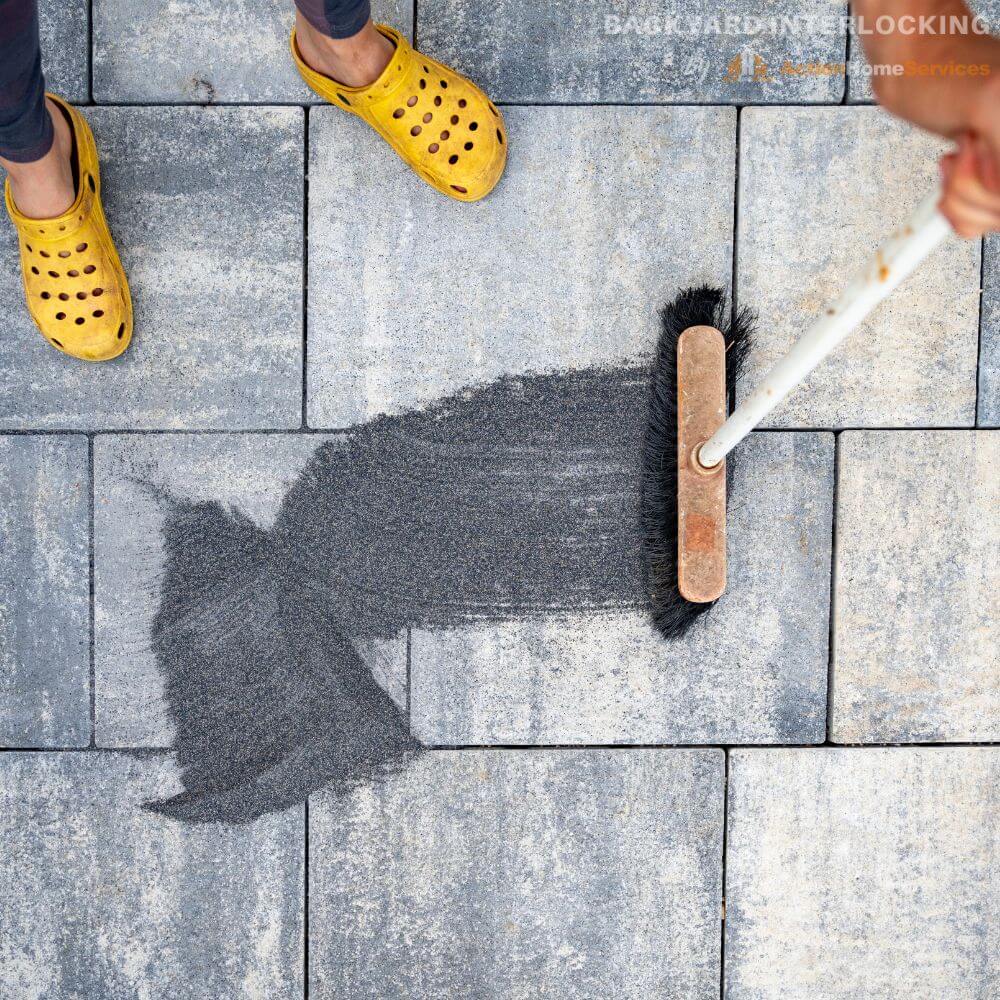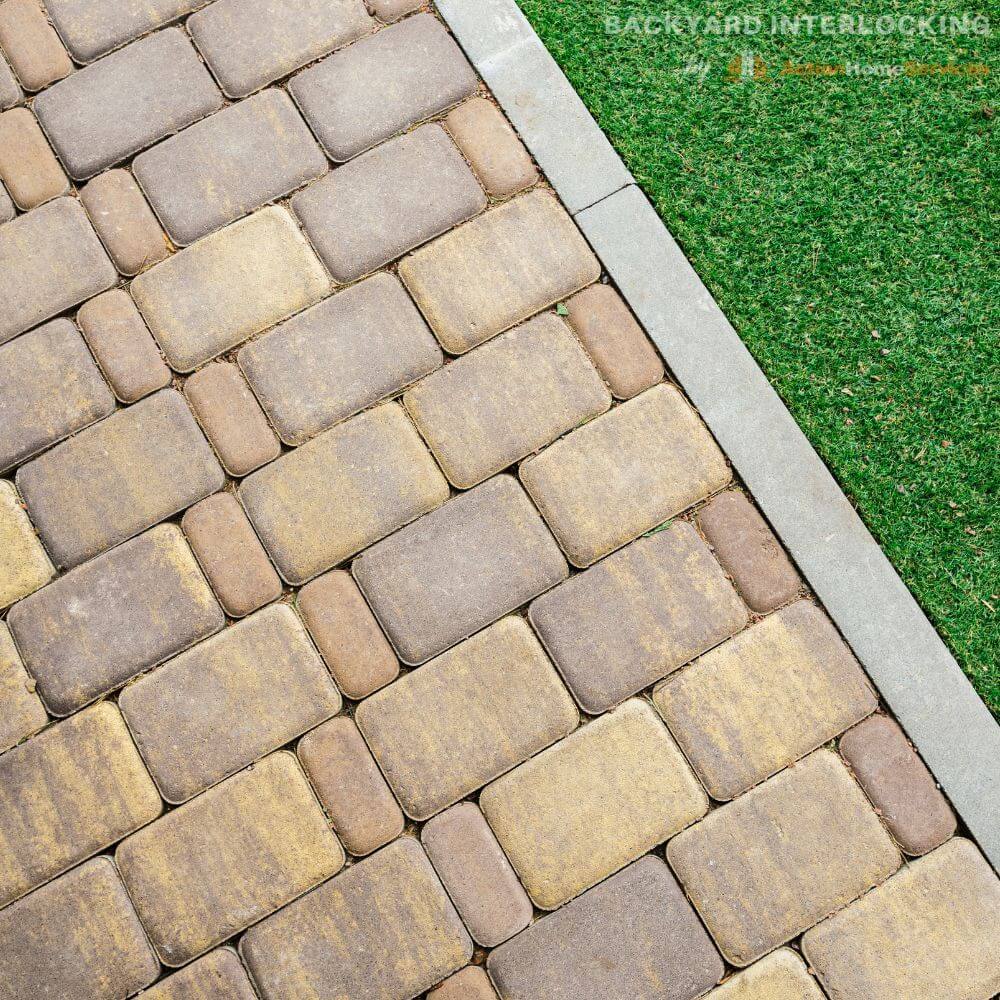Joint Sand
Joint sand plays a pivotal role in fortifying the stability of interlocking pavers, and at Backyard Interlocking, we place a strong emphasis on its meticulous application.
Joint sand plays a pivotal role in fortifying the stability of interlocking pavers, and at Backyard Interlocking, we place a strong emphasis on its meticulous application.







At Backyard Interlocking, we prioritize the meticulous application of polymeric joint sand to establish a robust foundation for your interlocking pavers. Our expert contractors ensure every crevice is filled with precision, enhancing interlock stability and preventing shifting over time. This crucial step lays the groundwork for a durable outdoor space that withstands the test of time.
After the polymeric joint sand is evenly spread over the pavers, our attention turns to activation. Backyard interlocking contractors meticulously sweep the sand into the joints, ensuring seamless integration and maximum stability. Once the sand is in place, we proceed to mist the entire area with water, activating the polymeric properties of the sand. This crucial step initiates the bonding process, creating a solid, resilient surface that can withstand heavy foot traffic, weather fluctuations, and other environmental factors.
When it comes to transforming your outdoor space with interlocking pavers, the choice of contractor is paramount. At Backyard Interlocking, we stand out as the premier choice for discerning homeowners seeking excellence in craftsmanship and service. With years of experience and a dedication to quality, our team brings unmatched expertise to every project. From initial consultation to final installation, we prioritize clear communication, attention to detail, and a commitment to exceeding your expectations. When you choose Backyard Interlocking, you’re choosing a partner who values your vision and delivers results that endure.
At Backyard Interlocking, we understand that your outdoor space is an extension of your home—a place where memories are made and moments are cherished. That’s why we’re dedicated to enhancing your outdoor experience with our premium interlocking services. Trust Backyard Interlocking to elevate your outdoor experience and transform your dreams into reality.

Joint sand is a specialized material, typically polymeric, used to fill the gaps between interlocking pavers. It plays a crucial role in enhancing stability, preventing weed growth, and protecting the integrity of the paver installation.
Polymeric joint sand contains additives that allow it to harden and create a solid bond when activated with water. This helps to lock the pavers together, reducing movement and minimizing weed growth between the joints.
First, the polymeric joint sand is spread evenly over the surface of the pavers. Then, it is swept into the joints using a broom, ensuring that each crevice is filled. Finally, the entire area is misted with water to activate the sand and initiate the bonding process.
Polymeric joint sand offers several benefits, including improved interlock stability, reduced weed growth, resistance to erosion, and enhanced durability of the paver installation. It also helps to prevent insects from burrowing between the joints.
Ideally, polymeric joint sand should be applied in dry conditions to ensure proper bonding and activation. However, some products are designed to be used in damp conditions, allowing for greater flexibility in installation.
Polymeric joint sand is compatible with most types of interlocking pavers, including concrete, clay, and natural stone. However, it’s essential to choose a product specifically designed for the type of pavers being used to ensure proper compatibility and performance.